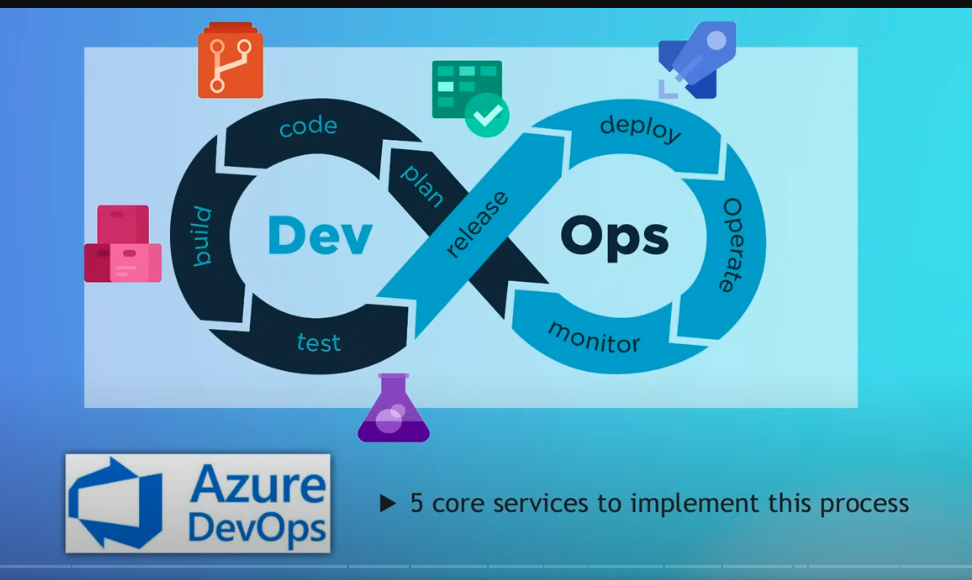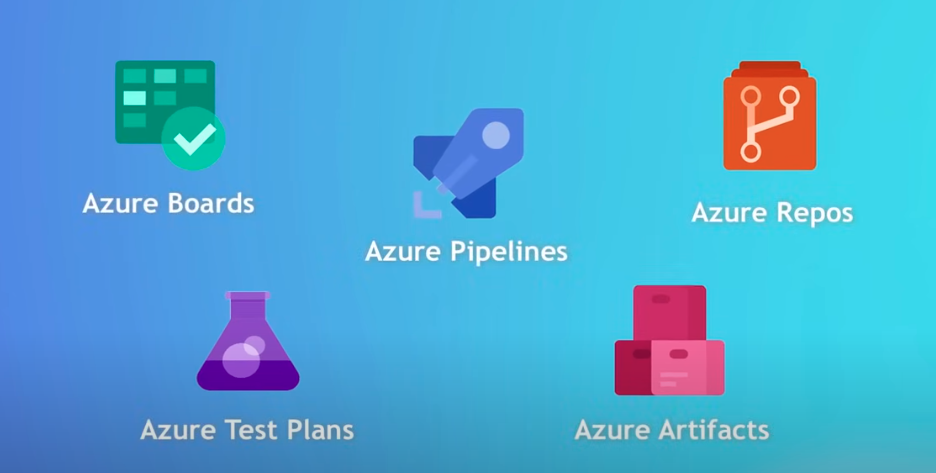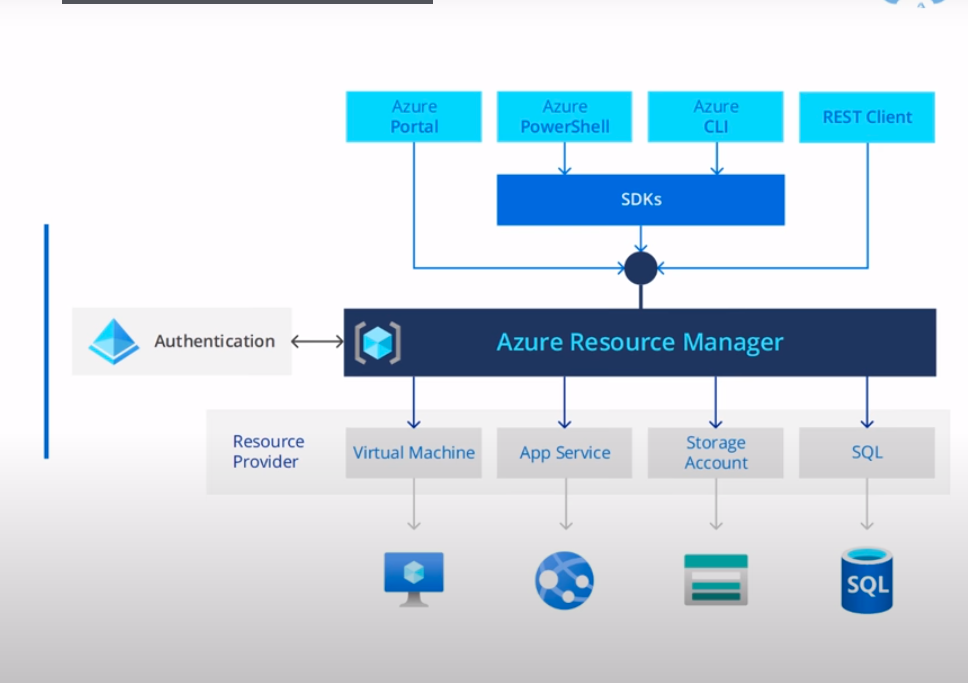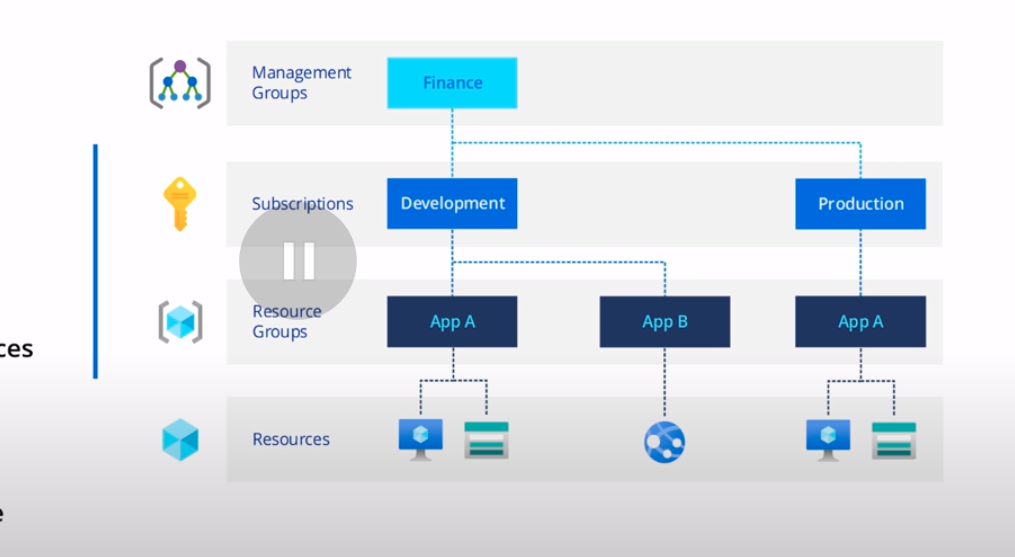Azure Devops
Lifecycle
5 core Azure devops services
Azure Bicep
- step up from just basic Arm templates
Azure Resource manager
- Azure resource manager uses Azure AD for authentication so it doesn’t matter if you use the Azure portal, cli or azure bicep it is all secure
- environments typically have a production and dev subscription
- along with different resource groups that are separated by their layer like the db layer, or the application server layer
- we can create a resource just like in the gui except using a arm template json
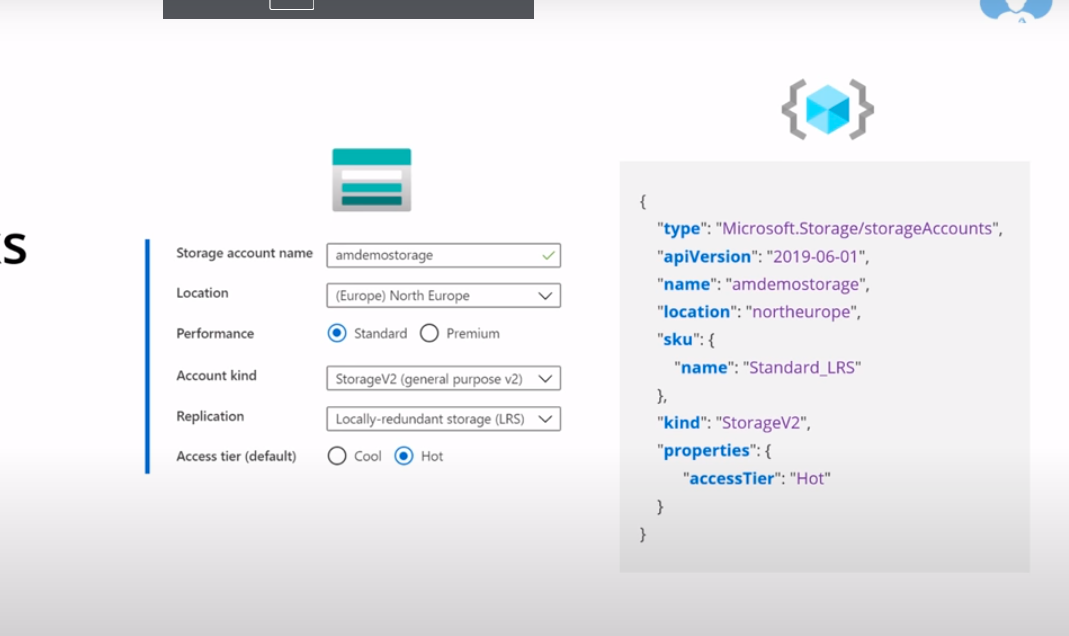
Arm Templates
- Benefits
- IAC
- (Governance as code) Policy and roles as code
- Repeatable results
- Orchestration
- Built-in validation
Install Azure powershell module
Install-module -name Az -AllowClobber
Bicep
String Intrepolation
- use dollarsign curly braces inside a string to use string interpolation
var prefix = 'prod'
var storageName = '${prefix}teststorage01'
Arrays
- Arrays are simple in bicep they are just
// use commas if they are on the same line
var x = [
1, 2, 3
]
// don't use commas if they are on different lines
var y = [
1
2
3
]
This will loop through the 3 different regions and create a storage account in each region
This also gets the index from each iteration by using (region, i). You can name i anything you want like index
var regions = [
'centralus', 'southeastasia', 'northeurope'
]
// location and storage account name
param location string = resourceGroup().location
var uString = uniqueString(resourceGroup().id)
var storageAccountName = 'toylaunch${uString}'
resource storageaccount 'Microsoft.Storage/storageAccounts@2021-02-01' = [for (region,i) in regions: {
name: '${storageAccountName}${i}'
kind: 'StorageV2'
location: region
sku: {
name: 'Premium_LRS'
}
properties: {
accessTier: 'Cool'
}
}]
Output to screen
- you can output the to screen when executing a bicep file with the output keyword
// output
output location string = 'Hello world'
1
2
3
4
5
6
7
8
9
10
11
12
13
DeploymentName : param
ResourceGroupName : Test
ProvisioningState : Succeeded
Timestamp : 12/30/2023 10:02:35 PM
Mode : Incremental
TemplateLink :
Parameters :
Outputs :
Name Type Value
=============== ========================= ==========
location String "Hello world"
DeploymentDebugLogLevel :
Parameters
- you can specify parameters to your bicep code like this
@allowed([
'john', 'briana', 'tresten'
])
param location string
1
2
3
4
5
6
7
8
9
10
11
12
13
14
15
PS /home/tpool/Playground/PowershellBicepExamples/Basic_Examples> New-AzResourceGroupDeployment -TemplateParameterObject @{location='tresten'} -TemplateFile ./param.bicep -ResourceGroupName Test
DeploymentName : param
ResourceGroupName : Test
ProvisioningState : Succeeded
Timestamp : 12/30/2023 10:04:06 PM
Mode : Incremental
TemplateLink :
Parameters :
Name Type Value
=============== ========================= ==========
location String "tresten"
Outputs :
DeploymentDebugLogLevel :
However if we passed something that isn’t in the @allowed array we get the following error
1
2
3
4
PS /home/tpool/Playground/PowershellBicepExamples/Basic_Examples> New-AzResourceGroupDeployment -TemplateParameterObject @{location='NOra'} -TemplateFile ./param.bicep -ResourceGroupName Test
New-AzResourceGroupDeployment: 4:05:19 PM - Error: Code=InvalidTemplate; Message=Deployment template validation failed: 'The provided value for the template parameter 'location' is not valid. The value 'NOra' is not part of the allowed value(s): 'john,briana,tresten'.'.
New-AzResourceGroupDeployment: The deployment validation failed
Unique string
- you may sometimes need to generate a unique string that is the same for resources in the same resource group but different when run in a different resource group
var unique_id = uniqueString(resourceGroup().id)
Ternary operator
- bicep has a ternary operator we can take advantage of
var storageAccountSkuName = (environmentType == 'prod') ? 'Standard_GRS' : 'Standard_LRS'
var appServicePlanSkuName = (environmentType == 'prod') ? 'P2V3' : 'F1'
VSCode Bicep extension
This post is licensed under CC BY 4.0 by the author.

